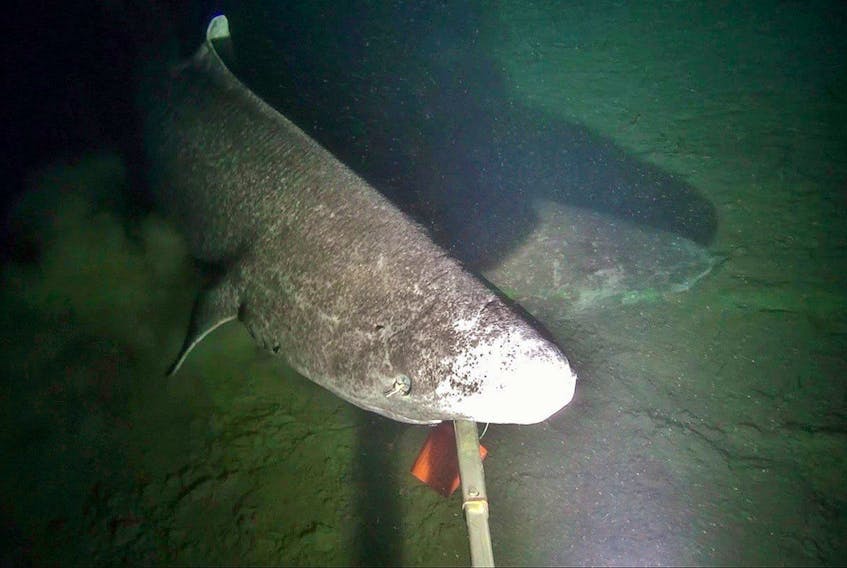Brynn Devine didn’t intend to get footage of Greenland sharks when she placed cameras in the waters off Nunavut.
Devine, a PhD candidate at the Marine Institute of Memorial University, and her team were in Nunavut working alongside the Arctic Fishery Alliance.
The Arctic Fishery Alliance is a 100 per cent Inuit-owned fishing enterprise in Nunavut that often conducts exploratory fishing work.
“We were there for an ecosystem survey. We were helping analyze their catch data and taking measurements on commercial species,” Devine said.
Alongside the survey, Devine and her team were collecting data for areas that hadn’t been sampled before, she said.
“We were trying to fill in a knowledge gap for those areas,” she said.
They weren’t sure what they would see on the underwater cameras, she said.
“It was more of an exploratory method. We figured we would see some sharks, but we weren’t really sure. So it was a happy coincidence that we were able to see so many.”
A lot of credit goes to the cameras that the footage was caught on, she said.
“I think we all hope to build on this work. Baited cameras are gaining a lot of traction. It’s cost-effective and low-impact.”
She would like to do more work with Greenland sharks in the future, she said.
“For this species, there’s still a lot of basic biology questions that are unknown. We don’t know a lot about it at all. There are still a lot of gaps to fill in.”
Hopefully this footage will shed some light on the species, she said.
“Given the remote areas they’re found in and the depths that they’re found in, they’re not a species that is really encountered often.”
Devine and her research partners, Laura Wheeland and Jonathon A.D., published a peer-reviewed study last month on their findings in Nunavut.









